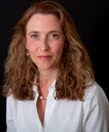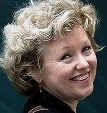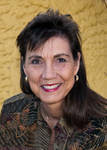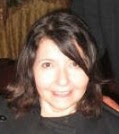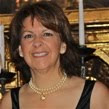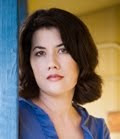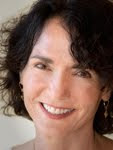Zohreh (Zoe) Ghahremani
Within each one of us, there's a story, screaming to come out. I wrote my first novel to unload what had weighed heavy on my mind for decades. Having three American born and raised children, ones who know little about their parents’ Iranian history, I thought the cultural nuances throughout the story and the descriptions of my homeland would be my legacy to them. However, proud as I am of my Persian heritage, the recent political conflicts between Iran and the U.S. limited my expectations. Still, deep down I continued to hope that my story would touch the hearts of a few.
Over the years of becoming a full-time writer, I published more than two hundred articles, vignettes, and short stories. But when it came to a novel, my rejection letters became such an impressive collection that it could have discouraged any writer. But each time my agent forwarded a new one, I did my best to get past the disappointment and find the good stuff in those letters, which in turn enabled me to once again see the full half of my glass.
A long time ago, I miraculously discovered the secret to happiness. As a young girl, I had envisioned my good fortune to arrive with a charming prince, be a gift even. I also thought such a gift was only given to select few. Somewhere along the way I realized that true happiness is in fact the sum of little joyful moments, that it’s up to us to learn the art of recognizing those tiny moments learning how to piece them together: a ray of bright sunshine, the chirp of a bird by the window, or a child coming home with a good report card. I also learned that life is a glass that will forever be only half full.
So instead of waiting for that moment of ecstasy when my agent would present me with a contract, or counting rejection letters and listening to her explanations on why my book had not found a “home” yet, I decided to take matters in my own hand. Now a year later, it is clear how those editors and I had both underestimated the power of readers.
In the absence of advertisement and without a publisher to support me, the best possible publicity came from readers, who felt a deep connection with my story and related to its characters. Each satisfied reader brought in ten more and soon my little novel had started a buzz. Invitations poured in from libraries, bookstores, major universities and before I knew it, my novel was introducing me to people and not the other way around.
I’d heard such expressions as, “only in America,” or “land of opportunity,” and dismissed them as words of the lucky few. The joy of this unsolicited success has proven that indeed only in this country would readers choose their writer from among the unknown – not to mention selecting one whose name is unpronounceable. As if an extended trip to Cloud Nine wasn’t enough, my novel is also in the “One Book, One San Diego” program for 2012.
In each public appearance, I make sure to carry my old typewriter with a bunch of lovely silk poppies bursting our of it. The audience may view this as a prop that ties into my novel, but to me there’s more to them. The ensemble is a reminder of my “Cinderella” days, of the nights I stayed up and worked, and the days of disappointment when I secretly chanted, “I think I can!”
In each public appearance, I make sure to carry my old typewriter with a bunch of lovely silk poppies bursting our of it. The audience may view this as a prop that ties into my novel, but to me there’s more to them. The ensemble is a reminder of my “Cinderella” days, of the nights I stayed up and worked, and the days of disappointment when I secretly chanted, “I think I can!”
My hard work continues with the rewrite of my next novel – The Moon Daughter. Short articles will be submitted as well and in fact, soon I will have my own column in a new women’s magazine from Texas called Zan. But regardless of what comes next, the poppies will forever have their special place. I hope to be an example, a positive messenger to younger and newer writers whose dreams may seem implausible. The clichés about not losing sight of your goal, that hard work pays off or that you should pursue your dreams are all true. As for fairy tales, they’re but an exaggerated version of true stories. Happiness is in loving what you do, and success will follow when others love it, too.
--------------
Zohreh ( Zoe) Ghahremani has written four books, of which two are published. The Commiserator is in her native language Persian, and her English novel Sky of Red Poppies was a finalist at the SDBAA and will be in OBOSD program for 2012. Her next novel, The Moon Daughter, is currently being polished for publication. When it comes to her finished satirical memoir of years of dentistry, titled Drill Fill & Bill, Zoe says, "That'll wait until readers know me enough to care! Sky of Red Poppies is available on Amazon, Turquoise Books, and most bookstores. Zoeg2010@gmail.com or visit www.zoeghahremani.com
Zohreh ( Zoe) Ghahremani has written four books, of which two are published. The Commiserator is in her native language Persian, and her English novel Sky of Red Poppies was a finalist at the SDBAA and will be in OBOSD program for 2012. Her next novel, The Moon Daughter, is currently being polished for publication. When it comes to her finished satirical memoir of years of dentistry, titled Drill Fill & Bill, Zoe says, "That'll wait until readers know me enough to care! Sky of Red Poppies is available on Amazon, Turquoise Books, and most bookstores. Zoeg2010@gmail.com or visit www.zoeghahremani.com

